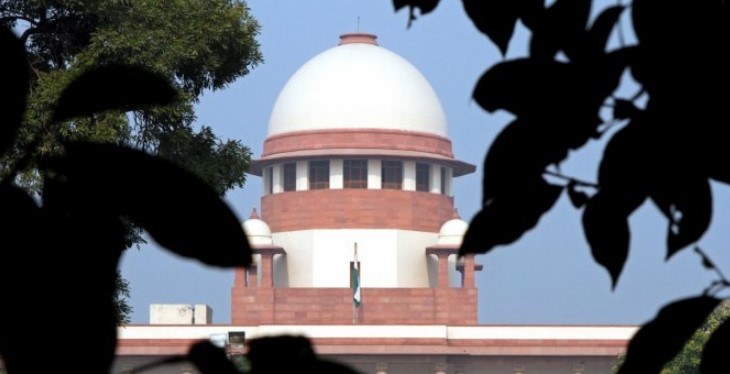UT not permanent feature, positive statement soon: Centre to SC on J&K’s statehood
The Central government on Tuesday told the Supreme Court that “Union Territory is not a permanent feature” after the Constitution Bench asked the Attorney General and Solicitor General to seek instructions from the Centre over the timeframe to restore statehood of the erstwhile state of Jammu and Kashmir.
The state was downgraded into two Union Territories (UTs) in 2019 — J&K and Ladakh.
Also Read: Police freezed properties worth crores of peddler in J&K
“The instructions are – UT is not a permanent feature. But, I will make a positive statement the day after tomorrow (regarding Jammu and Kashmir),” said Solicitor General Tushar Mehta, adding that Ladakh would remain a UT.
Solicitor General (SG) Mehta clarified that he will meet the high-level functionaries in the government along with Attorney General (AG) to seek more instructions to make a statement before the court.
He submitted that Union Home Minister Amit Shah made a similar statement on the floor of Parliament. “This is not a permanent situation, after the situation returns to normalcy, we want it to become a state again,” said Mehta referring to the Home Minister’s speech.
Mehta apprised the Constitution Bench that for the first time in the history of J&K, local government elections took place in 2020 where around 34,000 people were elected, adding that no “hartal (strikes), stone pelting or curfew” had been there in the valley post revocation of Article 370.
During the hearing, Chief Justice of India D.Y. Chandrachud-led Constitution Bench remarked that the erstwhile state cannot be a “Union Territory in permanence”, stressing that restoration of democracy was very important.
“We understand that these are matters of national security. We understand that ultimately preservation of the nation itself is an overriding concern. But without putting you in a bind, both you (SG) and Attorney General may seek instructions on the highest level – is there some time frame in view?” orally asked CJI Chandrachud.
The Constitution Bench questioned whether the Union cannot have control over a certain stipulated period to bring stability in a particular region.
“Should we not give allowance (permit) Parliament to postulate that for a certain period, in interest of the preservation of the nation itself,…for a certain stipulated period that this particular state should go into the fold of UT- on the clear understanding that this shall revert back to a position of state over a period of time,” remarked CJI Chandrachud.
He said that the Union government will have to make a statement before the Constitution Bench about the progression that has taken place in J&K, adding that “it can’t be a UT in permanence.”
“Because let’s face it, whether it’s a state or Union Territory, all of us survive if a nation survives. If the nation itself does not survive, there is no question or relevance of state or UT,” remarked CJI Chandrachud.
The Constitution Bench, also comprising Justices Sanjay Kishan Kaul, Sanjiv Khanna, B.R. Gavai, and Surya Kant, has sought Centre’s roadmap. “Is there a roadmap? Tell us what the roadmap is,” it said.
Notably, a 5-judge Constitution Bench is hearing a clutch of petitions challenging the 2019 Presidential Order taking away the special status accorded to the erstwhile state of Jammu and Kashmir and its bifurcation into two Union Territories.
In an affidavit filed before the top court, the Central government has defended the revocation of the special status of Jammu and Kashmir saying that its decision to dilute Article 370 has brought unprecedented development, progress, security, and stability in the region.
The Union Home Ministry said the street violence, engineered and orchestrated by terrorists and secessionist networks has now become a thing of the past and and the “organised stone pelting incidences connected with terrorism-separatist agenda, which were as high as 1,767 in 2018 has come down to zero in 2023 till date”.
The Centre stressed that it has adopted a policy of zero tolerance against terrorism and after constitutional changes, the security situation in Jammu and Kashmir has improved significantly.
In the pending matter, intervention applications have also been filed by Kashmiri Pandits supporting Centre’s move stripping special status accorded to the erstwhile state of J&K.




